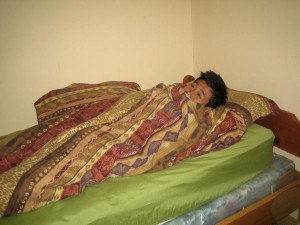Pneumonia involves swelling of the tissues in one or both lungs usually due to an infection. At the end of the breathing tubes in the lungs, there are clusters of small-sized air sacs. If an individual is diagnosed with this condition, the tiny sacs are inflamed and become swollen with fluid.
What are common symptoms?
- Cough that produces thick mucus or phlegm that is green, yellow, brownish or blood-streaked
- Difficulty breathing
- Fever
If the following symptoms are present, it simply indicates that the individual has pneumonia. With this in mind, it is vital to consult a doctor for further assessment and proper treatment of the condition.
When to consult a doctor

If the individual feels sick and experiences any of the symptoms of the condition, a doctor should be consulted. In most cases, a chest x-ray or further testing is required to confirm a diagnosis.
Once the individual experiences severe symptoms such as chest pain, rapid breathing or confusion, it is vital to seek immediate medical care.
Causes of pneumonia
The usual cause of pneumonia is a pneumococcal infection due to the bacteria called Streptococcus pneumonia. Nevertheless, there are other strains of bacteria and viruses that can trigger pneumonia.
Proper hygiene and a healthy lifestyle can prevent this respiratory condition. It is vital to avoid smoking since it damages the lungs as well as increasing the risk for infection. Those who are at risk for pneumonia must be given both the pneumonia and flu shot.
Treatment for pneumonia
When it comes to mild cases, they can be managed at home using antibiotics, rest and fluids. Individuals who are otherwise healthy can recover well. For those who have health issues, pneumonia can become severe and require treatment in a healthcare facility.
It is important to note that this illness has a high tendency to cause complications in which some are fatal depending on the age and overall health of the individual. The usual complications include the following:
- Lung abscesses
- Respiratory failure due to fluid accumulation in the air sacs
- Blood poisoning
Who are at risk?
This condition can affect both children and adults especially during the autumn and winter season. Always bear in mind that pneumonia can affect individuals of all ages, but more common in the following age groups:
- Infants, young children and the elderly
- Individuals who smoke
- Individuals who have health conditions such as respiratory issues or a weakened immune system
These groups are more likely to require treatment at a healthcare facility.
